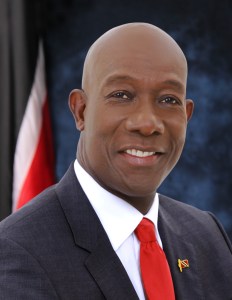By Samuel Sukhnandan
In an effort to boost local capacity in the oil and gas sector, the Governments of Guyana and Canada’s Newfoundland will sign a Memorandum of Understanding (MoU) this month.
Canadian High Commissioner to Guyana, Lillian Chatterjee in an exclusive interview with <<<<INews>>>>> said the Natural Resources Minister from the Canadian Province of Newfoundland will be visiting Guyana on October 15 to ink the agreement.
“What we’re hoping to be able to do in our relationship with Guyana is to share our expertise to help you build up your own capacity; both in Government and in the Private Sector so that you can realise the economic benefits in your own country,” she told this publication.
The Canadian envoy said the MoU will last for three years and will allow Guyana the opportunity of learning how Newfoundland managed to utilise that sector to improve its economy.

Canada has the third largest oil reserves, is the fifth largest oil producer and fourth largest oil exporter in the world.
“They want to share their Public Sector expertise with the new Department of Energy, to help them prepare in terms of regulation, governance, and public accountability in the oil and gas sector,” Chatterjee said of Newfoundland’s decision to partner with Guyana through an MoU.
The Canadian High Commissioner explained that the experience in Newfoundland is unique and will fit into Guyana’s new discovery. Chatterjee said there are many things that Guyana could learn from that province.
According to her, Newfoundland discovered oil offshore Canada 30 years ago, just like the case of Guyana.
“It was the poorest province in Canada. Its entire resource was based on fishing and then there was a moratorium on fish. And that meant high unemployment, people lost work, people left in droves.”
Chatterjee recalled that when Newfoundland discovered offshore oil, the first thing they did was to build capacity to deal with the oil boom. Assistance was sought from within Canada, the United States, Scotland and Norway.
“And now if you go to Newfoundland you won’t recognise that it is the same province 30 years back because it’s got the oil industry, and other revenues streams coming in,” she explained.
In addition to that, Newfoundland was able to build its infrastructure, not only around the oil sector, but to aid support services. The province which once depended on the contribution of other provinces to fund their work programme now gives back.
“So, some money from the richer provinces go to the poorer provinces, Newfoundland was a receiver. But now they are very proud to say that they are a giver. They are very proud of that,” she added.
The Canadian envoy said the exploitation of Guyana’s energy reserves will generate increases in revenue that will provide funding for capital works, while the energy sector itself will create a broad spectrum of jobs.
With several Canadian companies already involved in oil and natural gas exploration activities in Guyana, the visit by the Natural Resources Minister of Newfoundland provides yet another indication of Canada’s interest in playing a pivotal role in the economic exploitation of the local energy sector.
Only recently, Guyana and Trinidad and Tobago (T&T) signed a MoU on Energy Sector Cooperation, which saw T&T Prime Minister, Dr Keith Rowley visiting Guyana for the first time with a delegation of Cabinet Ministers.

President David Granger and Dr Rowley assured that there is was no ‘takeover or sell-out’ of any sector by either side, but rather a sharing of information and ideas in the sector. This was a major concern for many local Private Sector companies.
Dr Rowley speaking to the Guyanese press following the signing at State House, said the document contains bilateral arrangements for the cooperation on energy issues such as possible financing and providing entrepreneurial skills as a “good neighbour.”
The Trinidadian Prime Minister expressed disappointed over concerns raised by Guyana’s Private Sector that the MoU allows for a takeover by T&T businesses.
“We are working towards ensuring that we, as a people not just the people of Trinidad and Tobago but the people of Caricom – Guyana, Trinidad and Tobago – do better for all ourselves and to come up against that is disappointing and to the extent that there is any potential takeover which I don’t think is happening or is going to happen,” Rowley said.
President Granger also debunked claims that the signing of the MoU lends to a sell-out of Guyana’s patrimony or natural resources. The Guyanese Head of State said Guyana stands to benefit from Trinidad and Tobago’s decades of experience in the oil and gas sector in areas of production, marketing, dealing with oil spills and international corporations.
Guyana is now home to the world’s biggest new deepwater oil discovery. US oil giant ExxonMobil has been keen to push development of the oil reserves. Production could begin in 2020 with production of some 500,000 barrels of oil a day.























